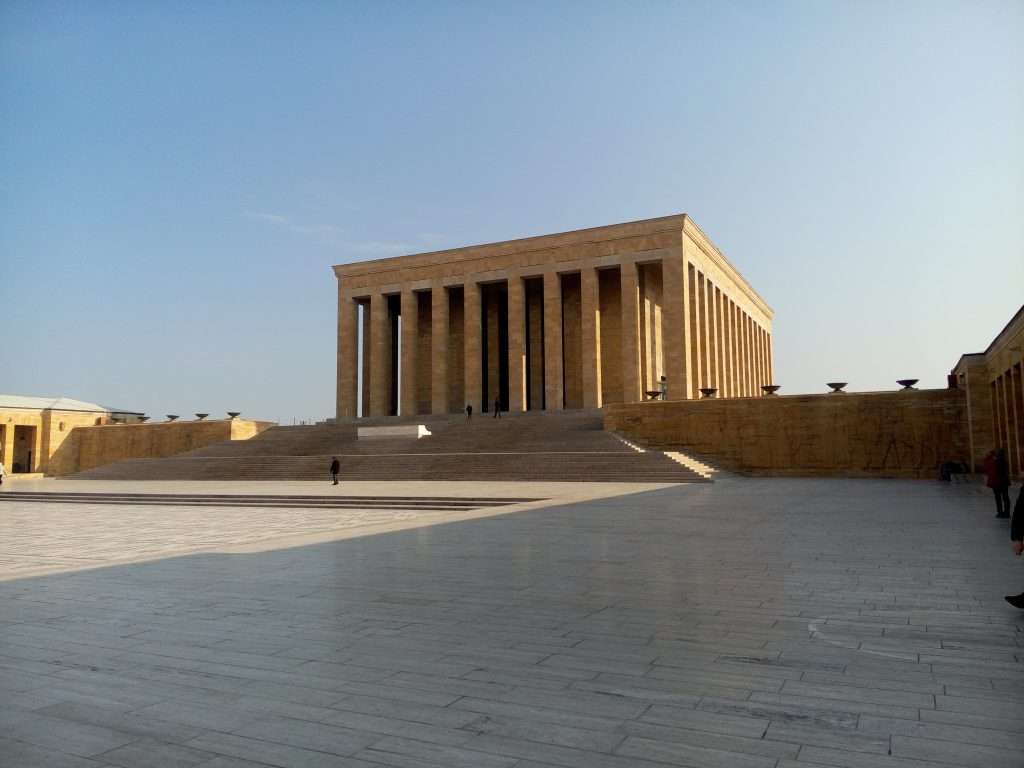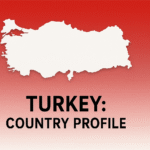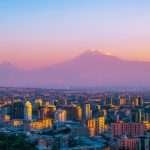A Glimpse into Ankara’s History
Ankara’s strategic location has seen it pass through many hands. The Galatians, Romans, Byzantines, and Seljuks all left their mark, yet power remained centered in Istanbul, keeping Ankara a modest provincial town.
In 1402, Turkic warlord Timur defeated the Ottomans at the Battle of Ankara. Although the Ottomans reclaimed the city by 1403, Ankara slipped back into relative obscurity until the 20th century.
After World War I and the Allied occupation of Istanbul, Atatürk chose Ankara as the heart of the Turkish nationalist movement. In 1923, the Grand National Assembly voted to relocate the capital here, sparking rapid urban growth.
In 1929, an international competition selected German architect Hermann Jansen’s master plan—designed primarily for middle- and upper-class neighborhoods. Frustrated by implementation challenges, Jansen formally withdrew in 1938. Thereafter, districts like Yenişehir and Kızılay emerged organically alongside older Ottoman quarters.
Today, Ankara blends ancient citadels with modern avenues—Turkey’s vibrant second city, smaller than Istanbul but rich in heritage and dynamism.
Ankara’s Rich Cultural and Historical Attractions
Ankara’s architecture reflects its layered past. Roman-era ruins include a bathhouse, the Column of Julian, and the Temple of Roma and Augustus. Byzantine traces survive in the citadel and an ancient cemetery. The Seljuk-period Alâeddin Mosque stands alongside Ottoman landmarks such as Hacı Bayram Cami (1427–28), the Mahmud Paşa market, and Kurşunlu Han (now the Museum of Anatolian Civilizations).
Ankara is also Turkey’s second-largest industrial hub after Istanbul. Key outputs include wine, beer, flour, sugar, pasta, biscuits, milk, cement, mosaics, and tractors. Meanwhile, the service and tourism sectors are rapidly expanding.
As a transport crossroads, Ankara sits on the primary east–west railway across Anatolia, and Esenboğa Airport to the northeast handles both domestic and international flights.
Major universities include the University of Ankara (est. 1946), Middle East Technical University (est. 1956), and Hacettepe University (est. 1967). Cultural institutions span the National Library, the State Theatre, and the Presidential Symphony Orchestra.
Numerous museums offer a deep dive into Anatolian history: the Museum of Anatolian Civilizations (Hittite collection), the Ethnographic Museum (Turkish folklore and art), and Anıtkabir, the mausoleum of Atatürk, which houses a dedicated museum of his life and legacy.
Anıtkabir: Atatürk’s Mausoleum

The final resting place of Turkey’s founder, Anıtkabir embodies Atatürk’s vision for a modern nation. Visitors can tour its grand halls, admire the mausoleum’s striking architecture, and view personal artifacts.
The Museum of Anatolian Civilizations
This world-renowned museum traces Anatolia’s story from prehistoric times to the Ottoman era. Highlights include King Midas’ golden tomb, the Hittite sun course relief, and a remarkable collection of ancient sculptures. Guided tours and interactive displays deepen the visitor experience.
Hacı Bayram Mosque & Temple of Augustus
In Ankara’s old town, the 15th-century Hacı Bayram Mosque adjoins the Temple of Augustus, showcasing Seljuk, Ottoman, and Roman heritage. The temple’s inscriptions detail Emperor Augustus’ achievements in exquisite detail.
The Vibrant Food Scene in Ankara
Traditional Turkish Cuisine

Must-try dishes include kebabs, meze, and baklava, alongside the local specialty Ankara simidi (sesame-crusted bread rings). For street eats, sample gözleme (stuffed flatbread), çiğ köfte (spiced raw meatballs), and hearty çorba (soup).
Restaurants & Eateries
Top spots include Trilye (seafood), Kebap 49 (kebabs), and Sofra Restaurant (home-style cooking). In Ulus, Aspava and Kale Cafe offer scenic city views.
Food Tours & Cooking Classes
Hands-on classes at Cookistan and Turkish Flavours teach traditional recipes. Guided tours also introduce regional ingredients and culinary customs.
Getting Around Ankara
Transportation Options
Buses, metro lines, and dolmuş minibuses form an affordable network. Taxis (metered), ride-share apps, and car rentals are also widely available.
Dress modestly at religious sites and learn basic Turkish phrases. Ankara is generally safe, but remain vigilant in crowded areas.
Must-Have Travel Apps
Use Google Maps or Yandex Maps for navigation, Google Translate for language help, and Foursquare or TripAdvisor for local recommendations.
Planning Your Trip
Best Time to Visit
Spring (April–May) and fall (September–October) offer mild weather and fewer crowds. Winters can be snowy; summers are hot and dry.
Visa Requirements
Most tourists require an e-Visa, available online at www.evisa.gov.tr. Apply at least one week before travel.
Accommodations
Kızılay and Kavaklıdere offer a range of hotels and easy metro access; Ulus provides historic charm. Options span from luxury brands to budget hostels and Airbnbs.
Currency & Budgeting
The Turkish lira (TRY) is the local currency. Budget about $50–60 per day for lodging, $30–40 for food, and $10–20 for transport and attractions. A 10–15% tip is customary in restaurants and taxis.
Beyond Ankara: Exploring More of Turkey
Nearby Cities & Attractions
- Cappadocia: Surreal rock formations and hot-air balloon rides.
- Istanbul: Hagia Sophia, Blue Mosque, Grand Bazaar, and Bosphorus cruises.
- Pamukkale: White travertine terraces and thermal pools.
Recommended Itineraries
- 10-day trip: 3 days in Ankara, 3 in Cappadocia, 4 in Istanbul.
- 14-day trip: Add Pamukkale, Ephesus, and the Mediterranean coast.
Frequently Asked Questions
What is the best time to visit Ankara?
Spring (April–May) and fall (September–October) combine mild weather with fewer crowds.
How do I apply for a Turkish visa?
Most travelers can obtain an e-Visa at www.evisa.gov.tr. Apply at least one week before departure.
Is public transport reliable?
Yes—the metro, buses, and dolmuş minibuses run frequently and affordably. Purchase an AnkaraKart for seamless travel.
Are there English-speaking guides?
Yes—licensed tour guides speak English and can be booked through local agencies or hotels.
What neighborhoods are best to stay in?
Kızılay and Kavaklıdere offer central access to restaurants and metro lines; Ulus provides historic charm.
What Did We Learn Today?
We’ve traced Ankara’s evolution from an ancient provincial outpost to the vibrant capital of modern Turkey. Along the way, we’ve uncovered its layered history, diverse cultural attractions, and dynamic culinary scene—while gathering practical travel tips. Ankara’s blend of antiquity and contemporary life invites you to explore Turkey beyond Istanbul.





